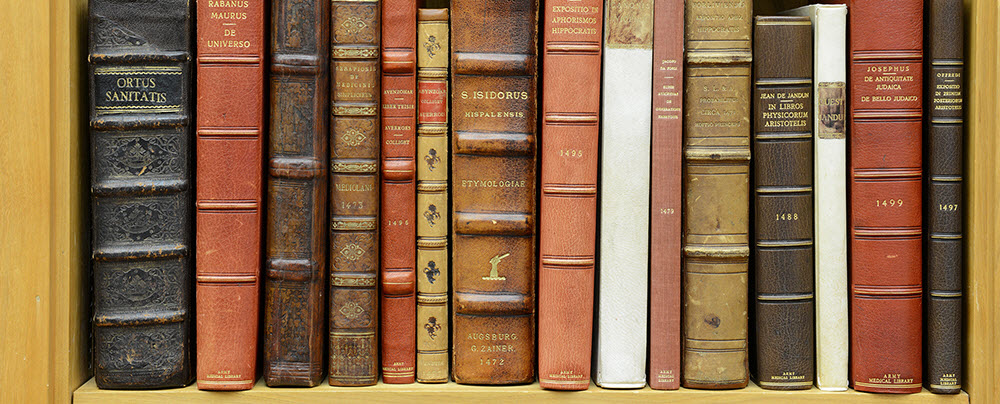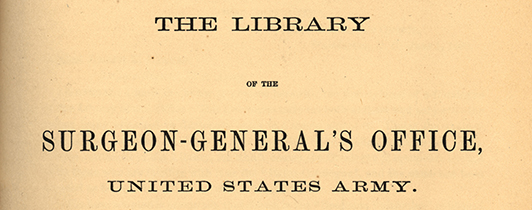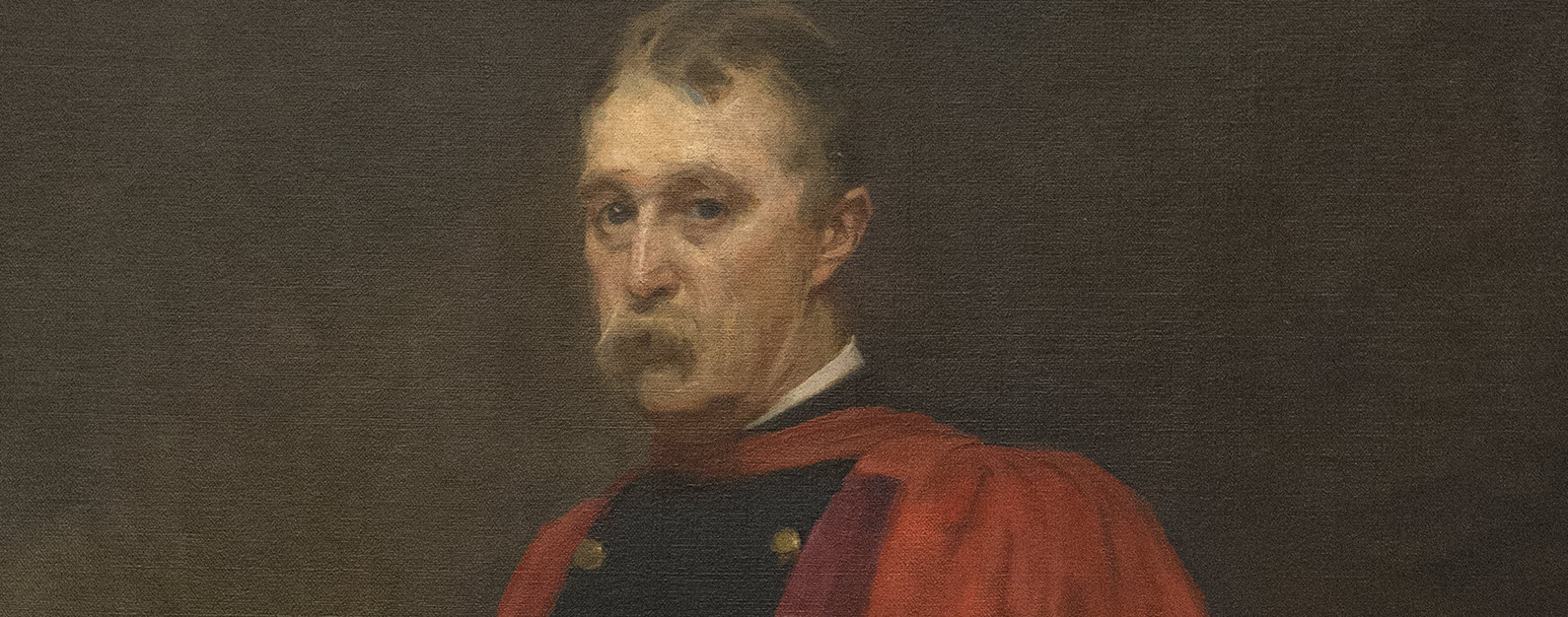The Index-Catalogue collection covers material from Antiquity through 1950 imprints. As in the printed series, Series 4 of IndexCat is incomplete. It includes citations printed only in the first half of the alphabet from A-Mn. The last half was never published. Therefore, if the first word of a name, title, or subject heading with its related journal articles file after Mn, they are not available. Series 5 excludes journal articles; the primary coverage is monographs, dissertations, and pamphlets with 1950 imprints or earlier. NLM will not add new bibliographic citations to the Index-Catalogue collection since its purpose is to reflect the bibliographic coverage of the printed Index-Catalogue.
The eTK collection supplements the printed Thorndike-Kibre (TK) by dividing entries from the book into separate records for each manuscript and incorporating additional information. Data has been treated in this way to allow searching by manuscript, to make a manuscript index possible, and to provide information on companion texts in any given manuscript. The goal of this undertaking was to produce an electronic version of the book, not to produce a thorough-going revision of it. New subject fields were added, a full-name thesaurus was created, and access is provided to TK bibliographies and for orthographic variants. In creating these electronic files the attempt has been to correct obvious errors in the book and supplements, wherever possible.
eVK2 collection is a companion to eTK (electronic Thorndike Kibre) and shares most field codes and record format with that collection. Two support files for names and subjects are also shared with eTK. In both eTK and eVK2 a record in the main database represents the appearance of a text or prologue in a specific medieval manuscript. These records in the underlying dataset for eVK2 are in manuscript order by collection. The sequence of eVK2 records in the database consequently differs from that in eTK which derives from a book. Base records in the eTK dataset are in alphabetical incipit order rather than manuscript order.
Close
Close All
Open All



